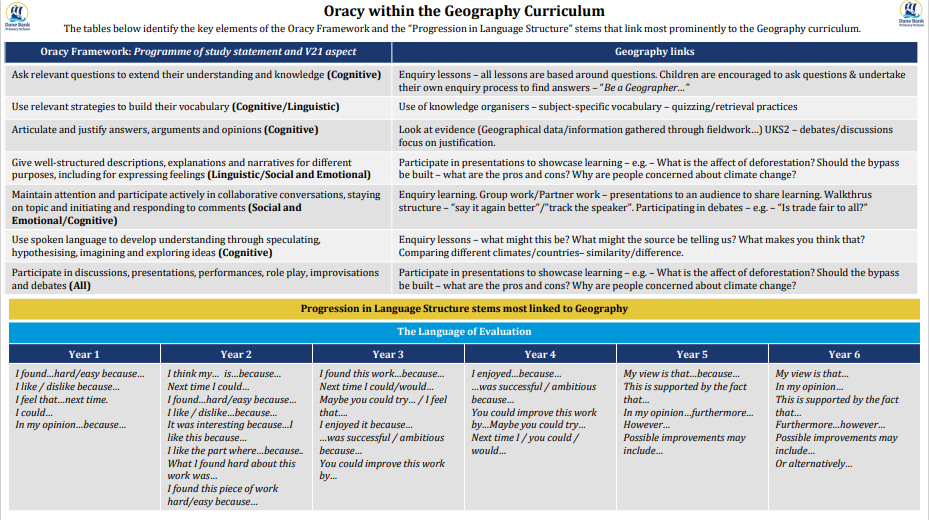Curriculum Intent
At Dane Bank Primary School we aim to provide a curriculum that is engaging, balanced and relevant to our learners. We passionately believe in developing the whole child, nurturing individual talents and fostering a love of learning and we work towards this through providing exciting and challenging learning opportunities in all curriculum areas.
The curriculum is underpinned by our school mission statement, “Enjoy and Achieve Together”, as well as our belief that our children should be provided with a curriculum that prepares them for a world where technology, careers and experiences are constantly changing and developing. Our curriculum not only aims to provide children with the skills that they need now, but also the ability to be flexible and resourceful, helping them to adapt and problem solve as they grow up in an ever changing world.
Our school curriculum is drawn from the National Curriculum for England which sets out the content and programmes of study for maintained primary schools. We view the National Curriculum as an entitlement for children in our school to access all subjects, thus providing them with a broad and balanced education that acknowledges the significance of English, Mathematics and Science but equally the importance of the Arts, History, Geography, Music, Languages, Technology, Computing, Religious Education and British values in a modern world. We have also use subjects such as PSHCE to support children in becoming emotionally-literate, active learners that think critically, ask and answer questions and reflect on previous learning. Our 6 school values: Resilience, Responsibility, Kindness, Empathy, Fairness and Respect, underpin all that we do.
Our curriculum is knowledge based. Subject documents (knowledge overviews) set out the core knowledge children will learn including key vocabulary which is explicitly taught. Maths, English and Science are taught as discrete subjects, however cross-curricular links are made to other subjects where there are high-quality opportunities to do so. Other subjects are sometimes linked through with History or Geography – however, we strongly believe in only doing this when there is a natural and valuable link which ensures the content and curriculum of each individual subject will not be diminished. Where we can make these links, we do so in order to enable children and teachers to make connections and develop strong subject knowledge. Our curriculum has been designed to be carefully sequenced – showing clear progression – and academically rigorous. Careful thought has been given to ensuring clear progression of knowledge and skills and learning units have been planned to build upon children’s prior learning. Our school context and the area in which our pupils live has also been a significant factor in our curriculum design – learning opportunities have been planned to link carefully to the local environment so that children see the work they do in class as relevant, meaningful and linked to their life outside school.
We expect teachers to demonstrate flexibility with their planning and teaching based on formative assessment outcomes in order to meet learners’ needs.
Should you wish to find out more about our school curriculum, please contact the school office who will arrange a meeting with the Headteacher, Joanne Lennon – our Curriculum Lead.
Our curriculum documentation consists of:
“Road Maps” showing progression
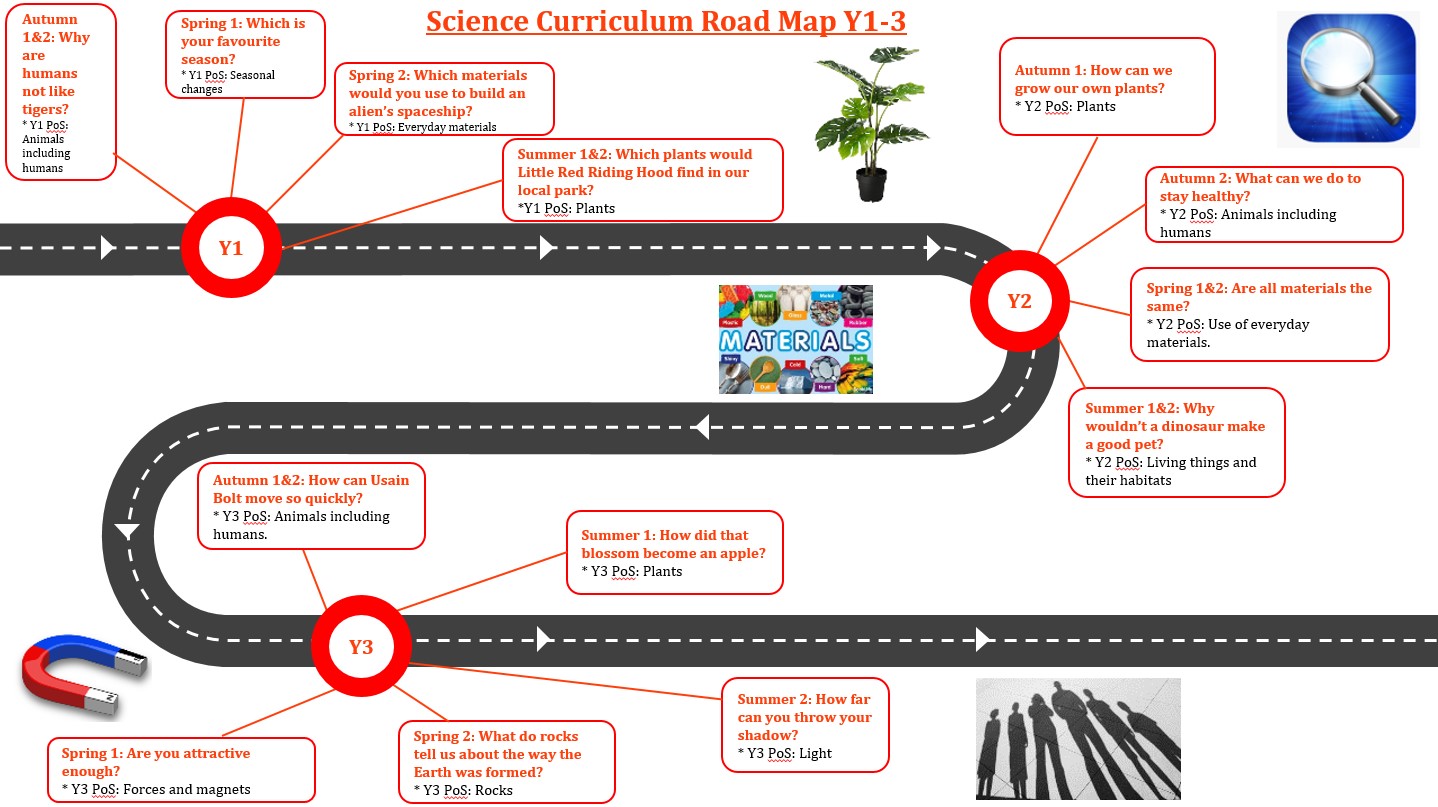
“Knowledge Overviews” showing essential knowledge/vocab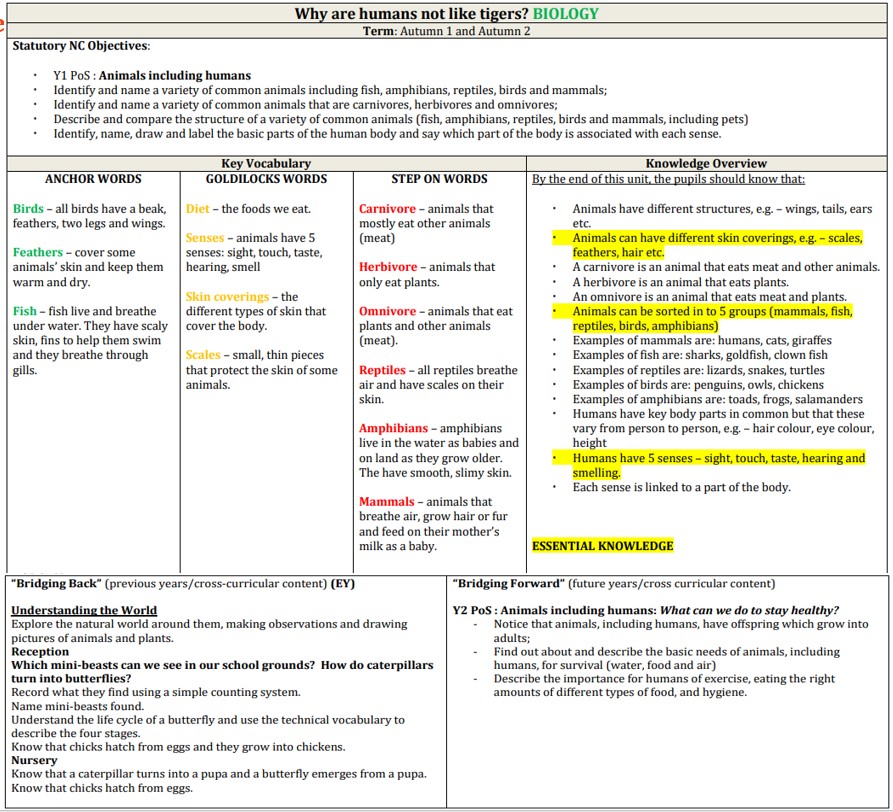
“Knowledge Organisers” to be used for knowledge retrieval and rehearsal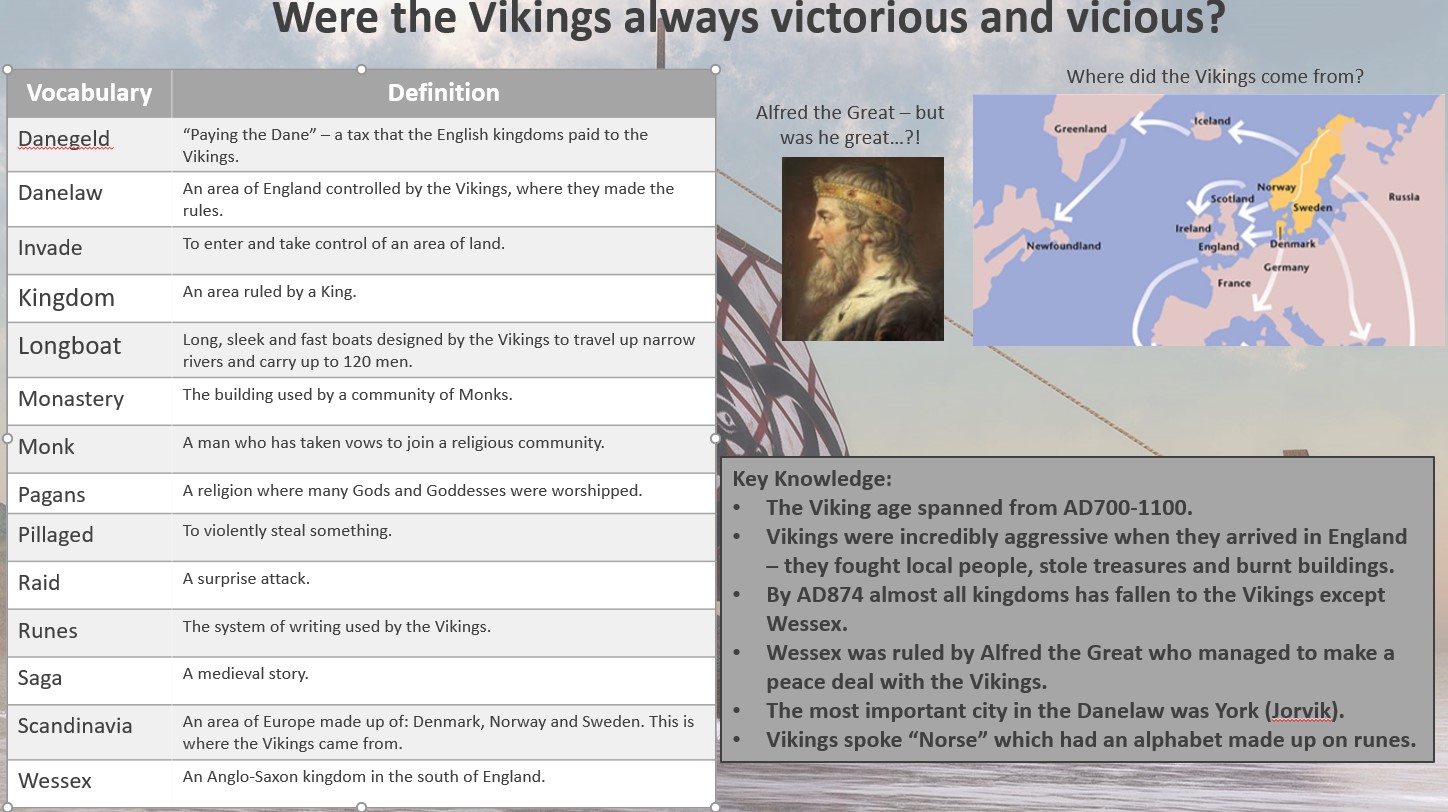
“Subject on a page” documents to show Intent, Implementation and Impact.
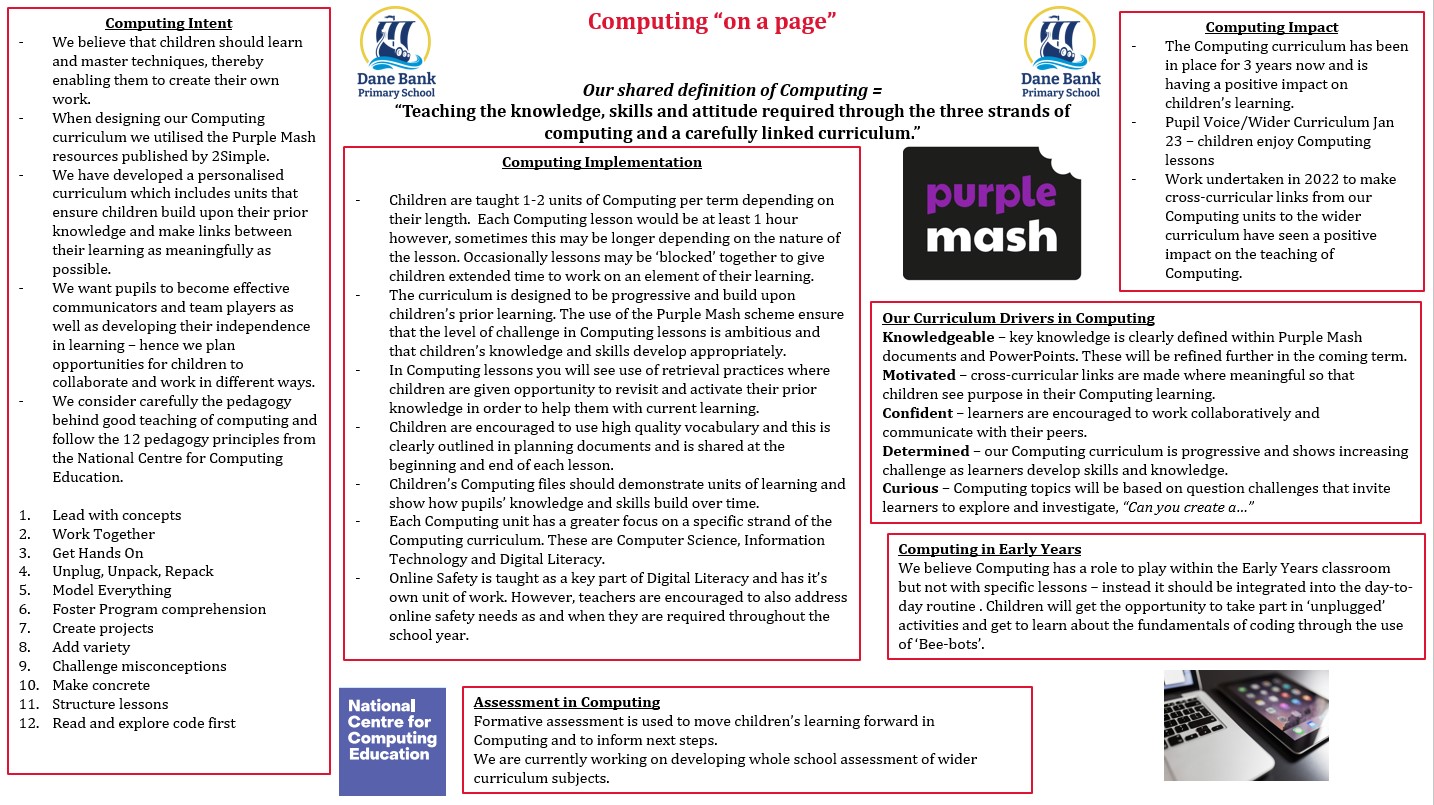
Our "Curriculum Drivers" and our "Curriculum Rubber Stamp" underpin ALL that we do:
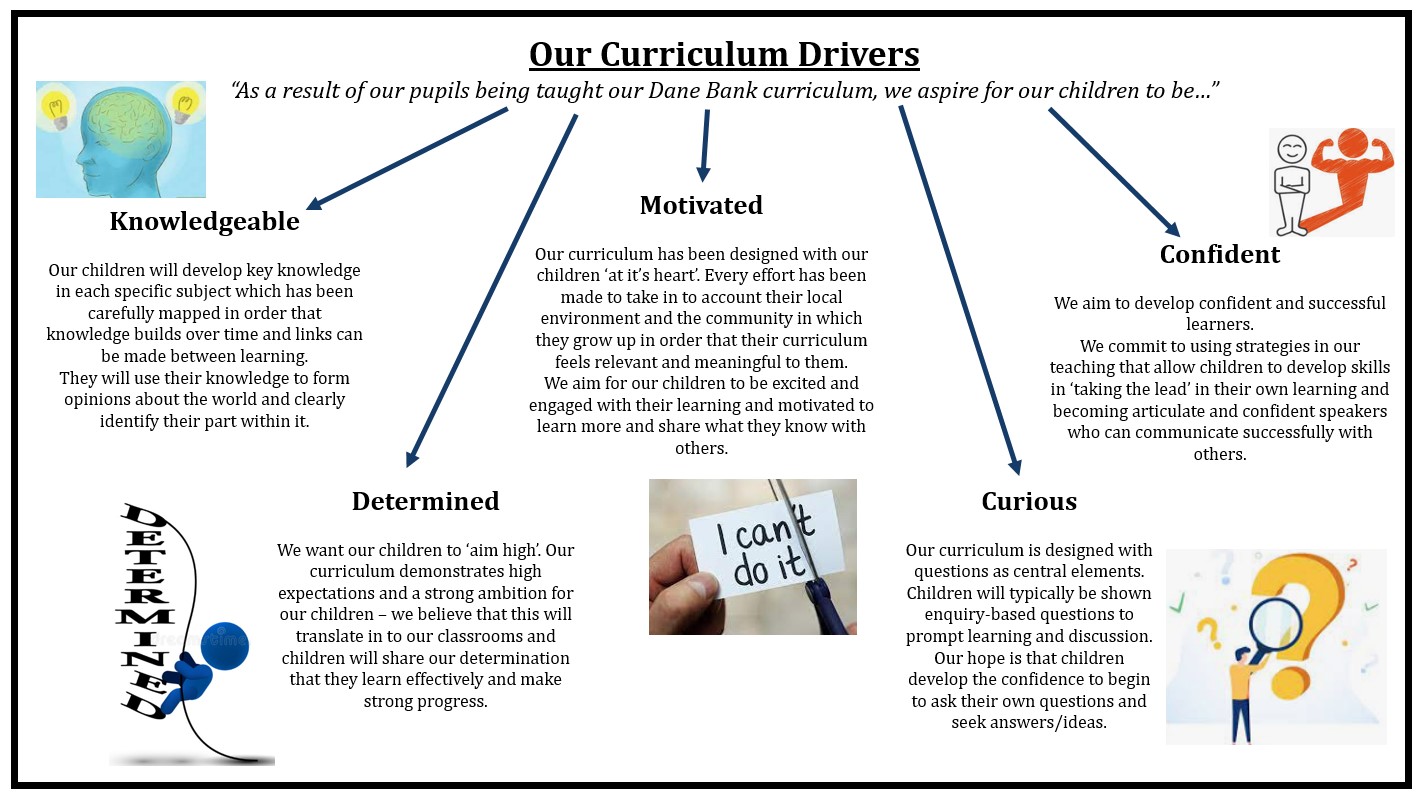
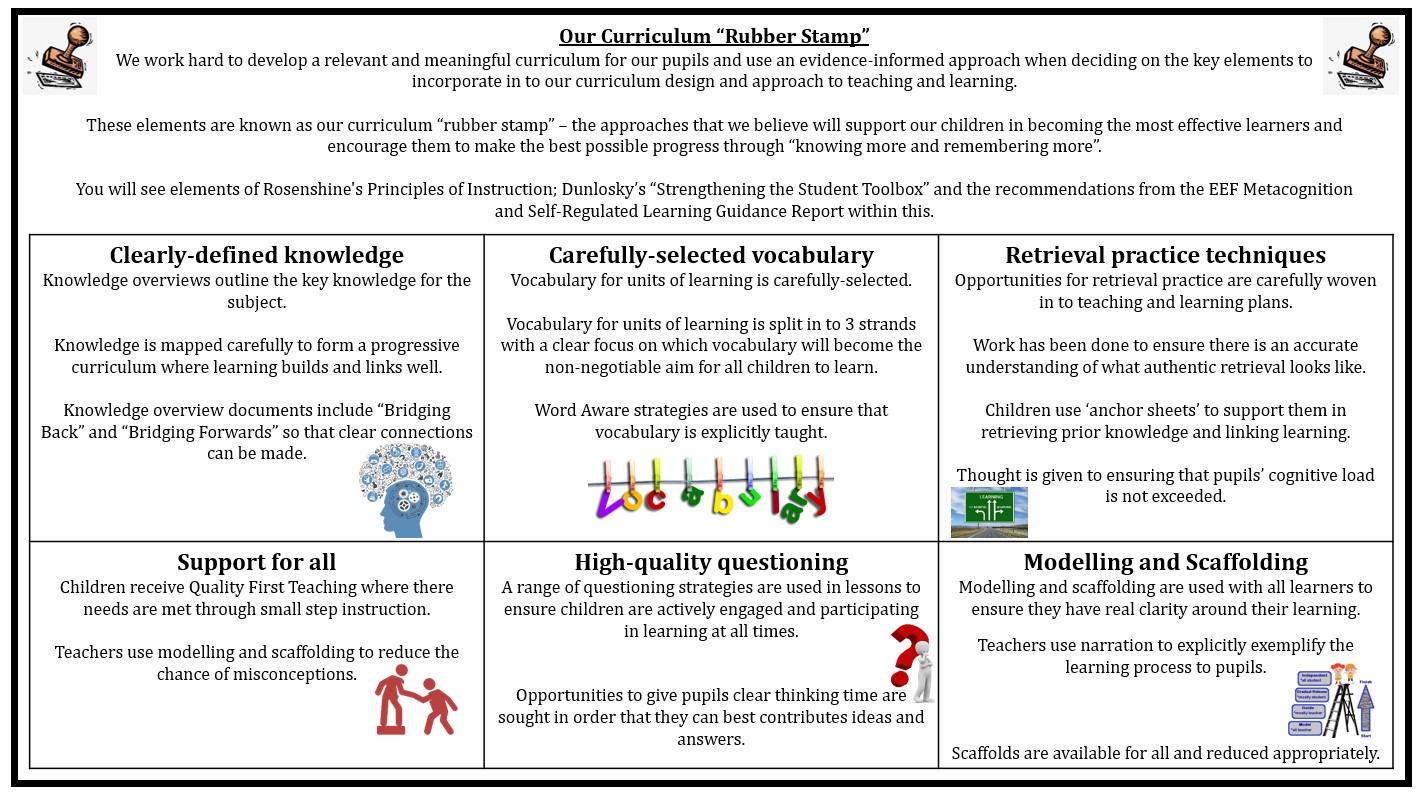
"Inclusion in..." documents demonstrate how we ensure all children are supported effectively across each curriculum area and how we ensure the needs of SEND learners are met.
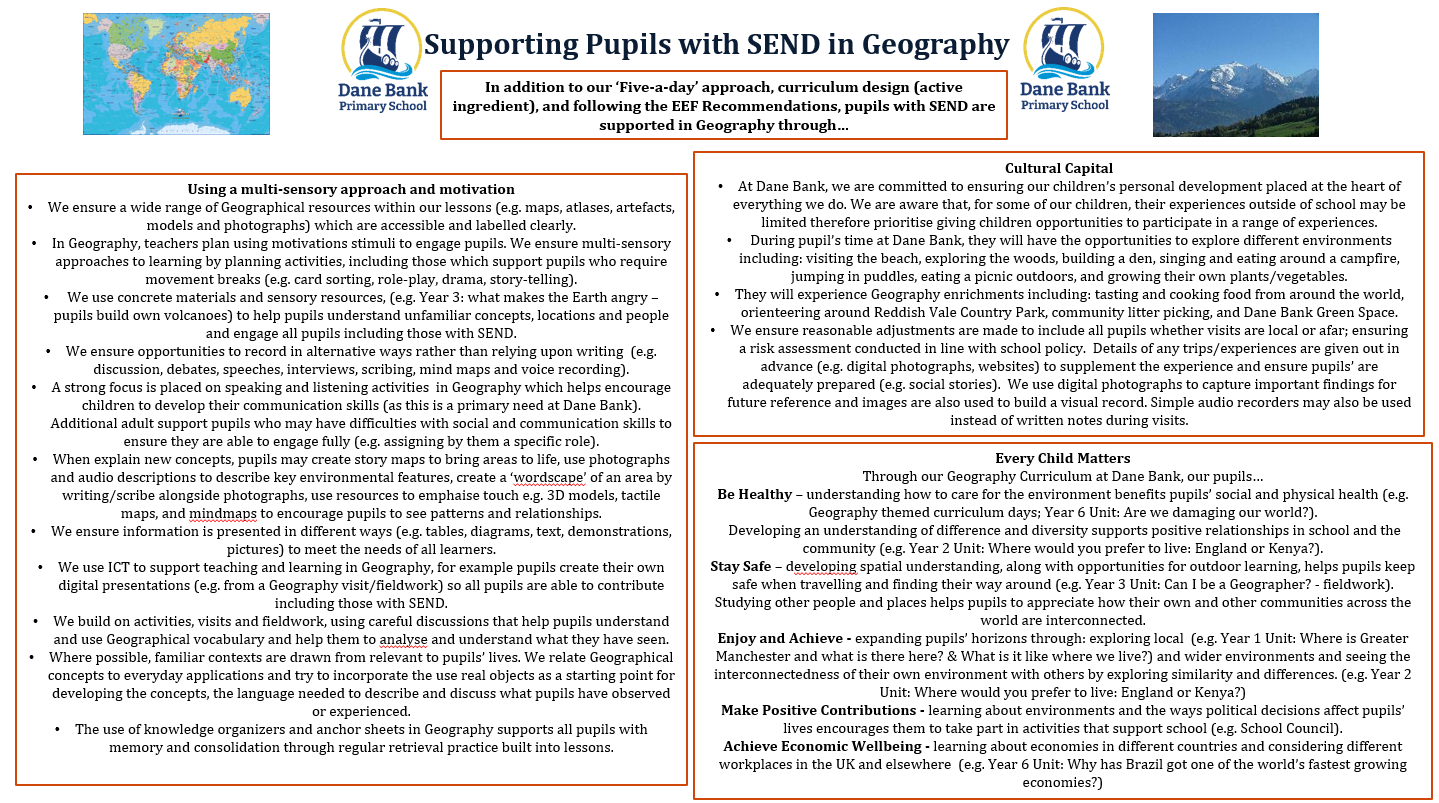
“Oracy in....” documents demonstrate the meaningful links between the wider curriculum and our Oracy Framework.
